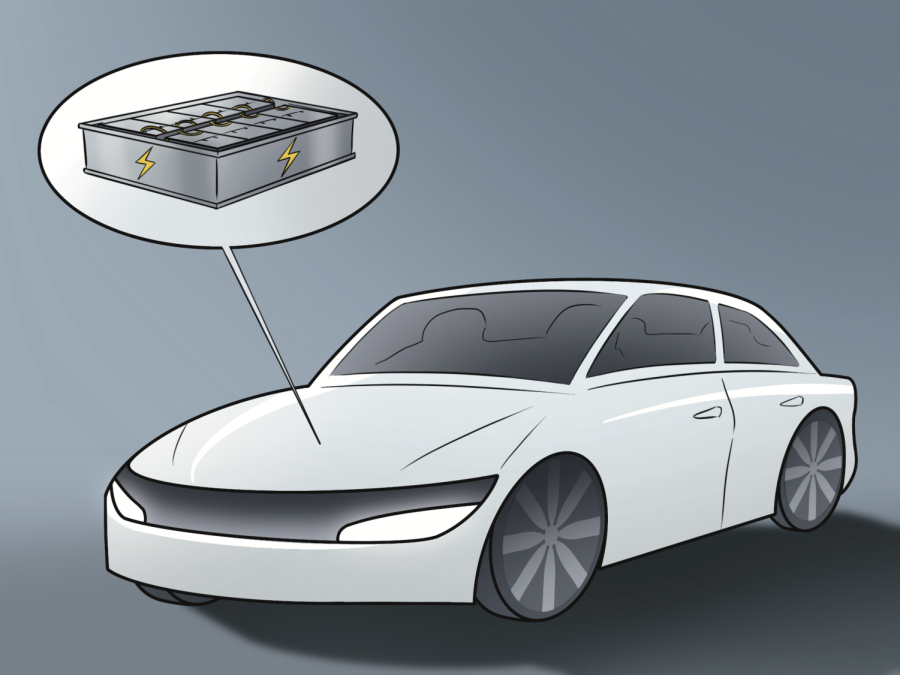UT researchers develop new electrode to improve the range and charging time of electric vehicles
October 14, 2022
UT researchers created a new type of electrode that could improve batteries in electric vehicles by helping them charge faster and last longer.
Kasun Raigama, a mechanical engineering senior on the research team, said the electrode was developed to optimize electric vehicle battery performance and “allow (the batteries) to store a lot of energy and also put out that energy very quickly.”
The research was led by Zhengyu Ju, a materials science and engineering graduate student, and Guihua Yu, a mechanical engineering professor. Ju said they wanted to address and then improve two drawbacks for electric vehicles — the long charging time and short battery life. To do this, Ju said they developed thicker electrodes, which first transfer power through the battery and then to the vehicle the battery is powering.
Although thicker electrodes increase the amount of energy a battery can hold, they also increase the time it takes to charge a battery, Raigama said. How quickly a battery charges depends on how fast the battery’s ions move, and thicker electrodes often cause the ions to move slower because there is more material for them to move through.
“(The) fast-charging ability of the (thicker) electrode is very poor compared to the conventional electrode,” Ju said.
To avoid this, the researchers said they had to change the architecture of the electrode to allow the ions to continue to move quickly, which Ju said they accomplished by creating a magnetic field within the electrode to facilitate ion travel.
“We were able to make an electrode — a battery electrode — that enables the battery to both hold a lot of energy and be charged and discharged very quickly, which isn’t very common,” Raigama said.
Raigama said the research process and the intense work that went into designing the electrode required a high level of focus and accuracy from the research team.
“If you want to make an electrode with the right formation, the right architecture, you have to follow so many intricate steps,” Raigama said.
Raigama said this development could help electric vehicles compete with the driving ranges of gasoline vehicles, which are typically able to travel 300-400 miles on a tank of gas. This battery also could potentially make electric vehicles more competitive by decreasing a long charging time, one drawback of many electric cars.
The new electrode will be a step toward accomplishing both of those goals, the researchers said.
“These are very crucial steps for the battery industry and electric vehicle industry to get closer to achieving a replacement for gasoline vehicles,” Raigama said.



